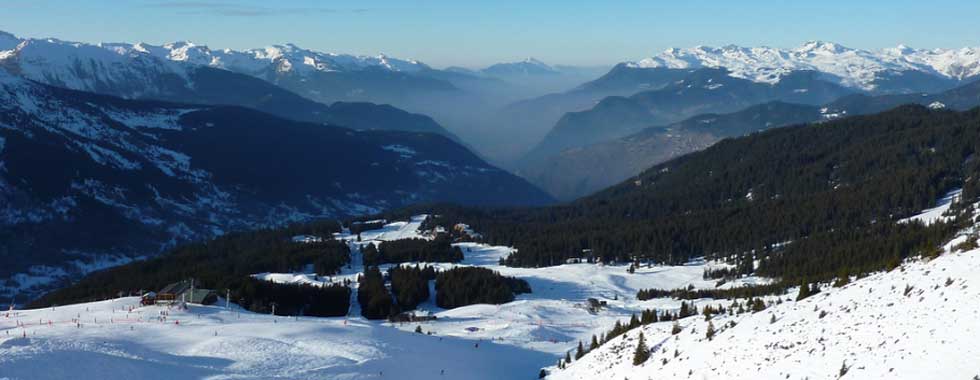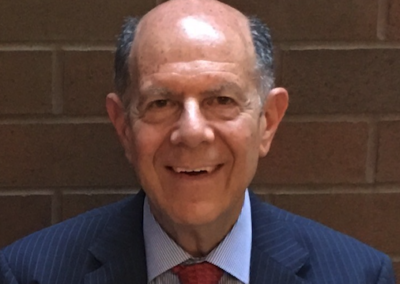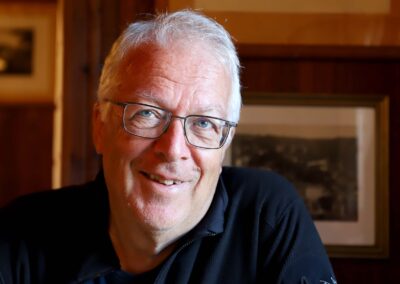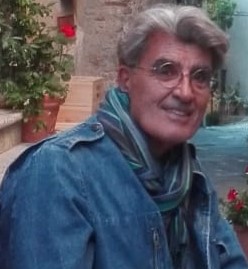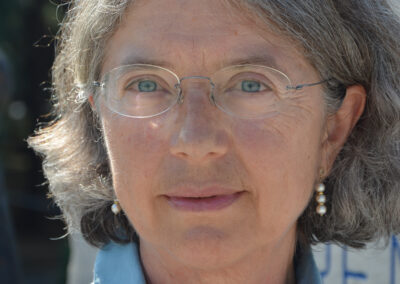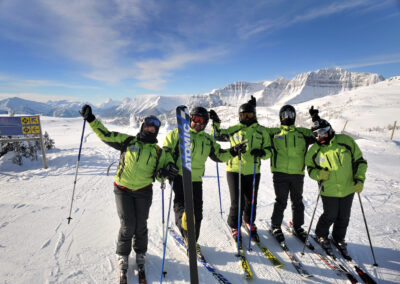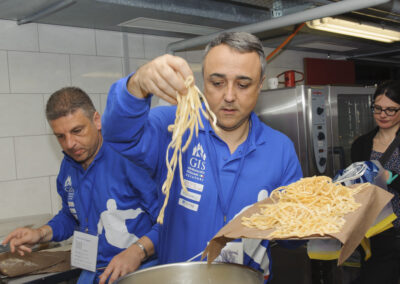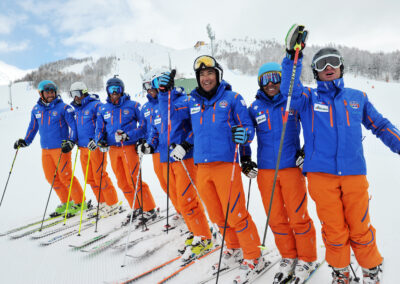OUR STORY GOES BEYOND MOUNTAINS
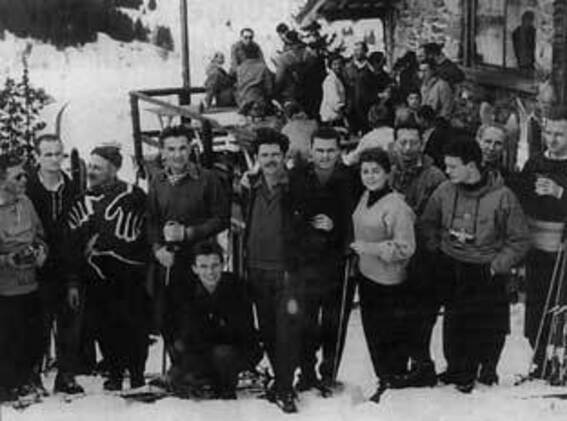

A Warm Front In The ”Cold War”
The Ski Club of International Journalists (SCIJ) was born in 1951, in the Pink Palace in Paris, France, during a meeting of foreign ministers from the four superpowers of the day. As the press conference ended, news reporters began taking their leave in stoney silence. There was no spontaneous exchange of ideas or opinions between the adherents of various and sometimes opposing political systems. There was no meeting of the minds of deeply committed individuals who were there as professional observers and communicators. More than anyone, Gilles de La Rocque was struck by this utter lack of communication and candour. A fervent mountaineer and skier, he dreamed of being able to unite journalists from different nations and opposing viewpoints in his beloved mountains, so they could finally meet, free of their narrow political vocabulary and exempt from all banality and chauvinism.
In January 1955, after 4 years of patient and untiring work, Gilles de la Rocque’s dream became reality when the first SCIJ winter meeting was held in Méribel-Les-Allues (France). Some 65 journalists from 8 nations (Austria, Belgium, France, Italy, Luxemburg, Switzerland, West Germany and Yugoslavia) attended.
Discussion Open Between East and West
The enthusiastic atmosphere created during that initial meeting was soon echoed in 1956 at Sainte-Croix-Les Rasses in Switzerland, where 92 journalists participated from 12 countries (Austria, Belgium, France, Great Britain, Holland, Italy, Luxembourg, Poland, Switzerland, USA, West Germany and Yugoslavia). If the Sainte Croix – Les Rasses meeting suggested that Gilles de La Rocque’s great idea had potential, then the third meeting, held in Kranjska Gora (Slovenia) in Yugoslavia, proved to be the turning point. For the first time, professional accredited journalists from both the Western and Eastern camps finally met and began exchanging their points of view, to the world’s great astonishment and benefit.
Ninety journalists from 13 countries met that year in Yugoslavia. Since then, SCIJ winter meetings have taken place regularly every year.
SCIJ Banff 2011
Roberto Micalli (L), Italy, Secretary-General, 2006-2014 Miguel Aquiso (R), Switzerland, President 2006 – 2014
Old Peace Horse Retires – SCIJ Keeps Skiing On
Towards the end of 1966, Gilles de La Rocque decided to retire from his post as acting president of SCIJ. His choice of successor was Marcel Pasche of Switzerland who, from the very first meetings at Meribel, had been an ardent promoter of SCIJ.
Mr. Pasche presided over SCIJ for eleven years. He invested our organization with statutes, technical rules and regulations that would successfully channel and govern our booming association’s gatherings and ambitions. These regulations were drawn up, debated, and adopted in Lausanne in Sept. 1967, at the initial SCIJ Congress.
The Lausanne Congress was followed by many others, in the course of which the organization’s internal business was carefully discussed, debated and, eventually, deployed. The congresses gave less mountainous countries the opportunity to show how attached they were to the club’s spirit and wellbeing. The international gatherings, on the other hand, placed greater emphasis on skiing.
New meetings, new countries, new presidents and a female leader
After Lausanne (1967), The Hague (1970), Budapest (1972), Wuppertal (1973), Knokke-Le-Zoute (1975), Bad Kleinkirchheim (1978), Luxemburg (1980), Prague-Roztez (1983), Deventer (1985), Jerusalem (1987), Sant Antonio-Ibiza (1989), Prague-Harachov (1991), Ljubljana (1993), South Bohemia (1994), Lausanne (1995), Rovinj (1998), Lloret de Mar (2005), Wallonia (2015), hosted the SCIJ without any ski… Gilles’ and Marcel’s successors to the presidency have been René Langel, Switzerland (1977-1978), Josko Pirnar, Yugoslavia (1978-1984), Tore Johannessen, Norway (1984-1990), Dennis Redmont, USA (1990-1994), Anders Hellner, Sweden (1994-1998), Beppe Errani, Italy (1998-2002), Ivana Suhadolc (2002-2006), Miguel Aquiso, Switzerland (2006-2014) and Frederick Wallace, Canada (2014-).
National Teams Get Activated
Over the years, despite the sometimes dramatic turns that world events can take, SCIJ has continued to grow. The number of nations adhering to the Club is at an all-time record, the number of skiing competitions has increased and national ski clubs have been formed in each member country.
National championships and regional meetings with foreign participants and spring outings have been added to the international programme and are now highlighted with extremely interesting roundtable conferences on the latest hot topics.
Journalists from North, South, East and West now converse in a friendly and enriching manner. In Belgrade as in London, in Lausanne or Milan, Prague or Brussels, Paris or Moscow, Algiers or Montreal, journalists from all branches of the press, from foreign affairs to finance, the arts and literary criticism and including photographers, sportswriters and even a few ski specialists (who, by the way, are not always the best skiers) are represented in our Club.
Toward New Horizons
In August 2006, the South American continent opened its doors to SCIJ, when 50 member journalists flew to Buenos Aires, Argentina. There was no Argentinian SCIJ club yet, but that didn’t prevent SCIJ from holding a summer meeting there. The excellently organized event included tango school and a horse opera in Buenos Aires and skiing in Bariloche and San Martin de Los Andes. It concluded by assuring the IC that the first official winter meeting in the southern hemisphere could be held in Argentina in 2010, again in August.
Yet another continent welcomed SCIJ in February 2010, when some 150 SCIJ members flew to Morocco. Most of the activities took place in Marrakesh as the skiing conditions in Oukaimeden at the Atlas mountains weren’t exactly what SCIJ members had been used to. Truth be told, we’d been pampered and spoiled for the previous 55 years and many of us may have grown accustomed to too comfortable a life. In 2011 we returned to Canada, followed by trips to Turkey (2012), and Russia (2020).
COVID-19 And Beyond
When the global pandemic struck, it impacted every facet of our existence in ways we can still barely comprehend. As a network of professional journalists, SCIJ adapted our ability to communicate by adopting modern communication tools to organize forums and exchange information with each other in real-time as the situation has evolved. The pandemic has forced a historic break from our annual meetings. That said, we are still actively planning to return to the mountains in Kazakhstan in 2022.
